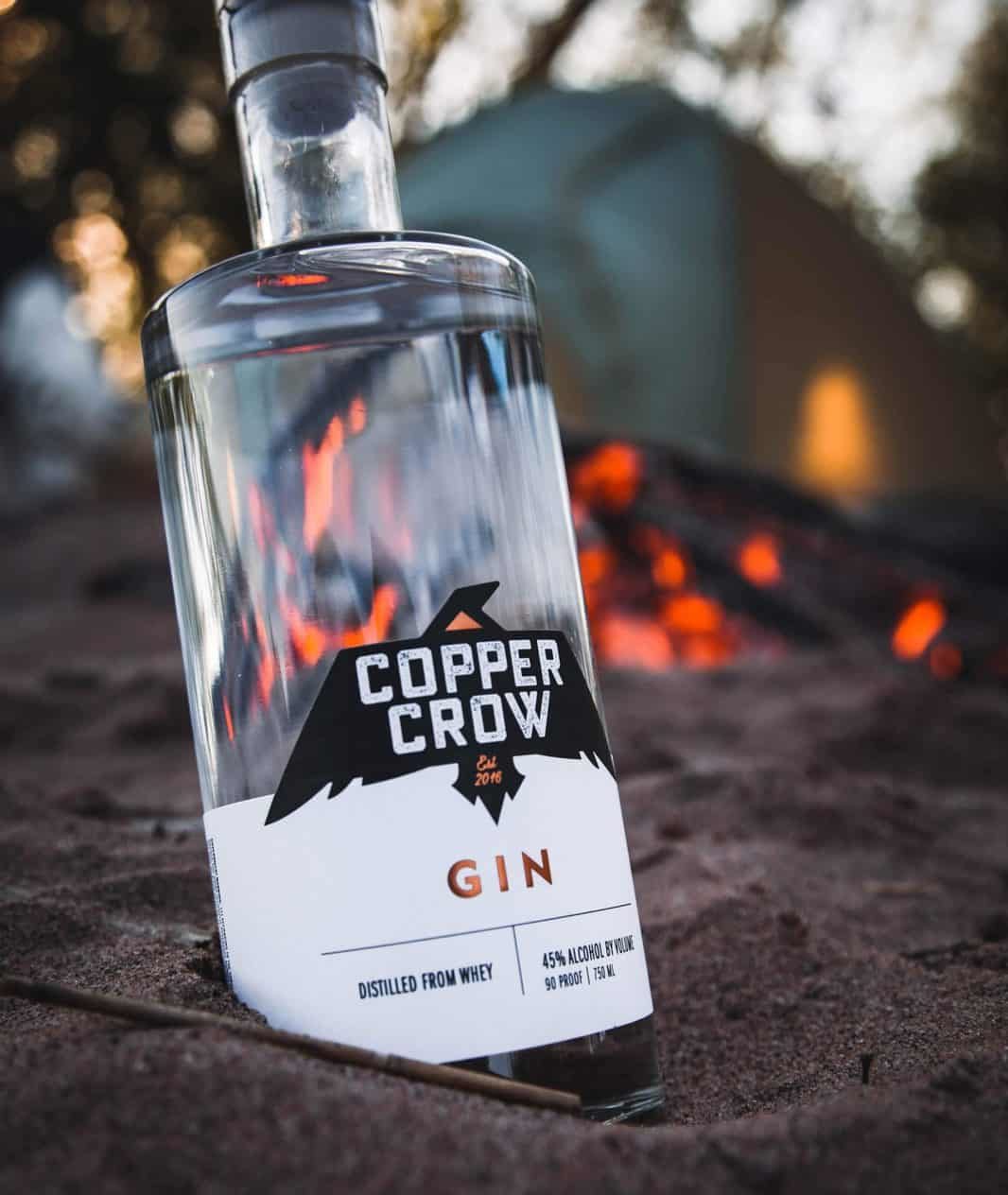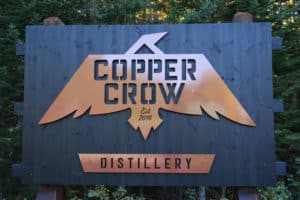
It started with a challenge. Curtis Basina was getting schooled in how to craft spirits like vodka, gin, and whiskey when his instructor, Rusty Figgins, proposed he take it a step further and dabble in a little-practiced subsect of distillation. “He pulled me aside and said, ‘You’re from Wisconsin, the Dairy State—why don’t you look at doing something with whey?’” Basina recalls.
Fewer than a dozen distilleries worldwide use whey, the watery byproduct of cheese, in their spirits. This is for several reasons, including access to dairies, which prohibits most distilleries from giving whey a go. It also requires a prodigious amount of the material to make liquor on a production scale; Basina estimates that if everything goes perfectly, he may get 50 gallons of vodka from 1,000 gallons of whey supplied by Burnett Dairy Cooperative in Grantsburg, Wisconsin. Whey-based spirits take more than twice as long to make and involve a more technical process—thanks to finicky lactose sugar—than traditional grain-based ferments, requiring more alchemy and patience to get the drink just right.
“The more research I did, the more I became fascinated by it,” Basina says. With help from University of Wisconsin-Stout science students (Basina’s daughter was a student there at thetime and her professors showed interest in the experiment), Basina was able to fine tune the whey-based gin and vodka that now serve as the flagship spirits at his Copper Crow Distillery in Bayfield. The mission, Basina says, was to bottle up the spirit of his tiny community, which sits on the shore of Lake Superior and serves as the main gateway to the ruggedly beautiful Apostle Island National Lakeshore.
While Copper Crow makes two vodkas, one with wheat and one with whey, each has very different characteristics. The wheat-based vodka, Basina says, carries notes of malt and nuttiness, whereas the whey-based iteration has a slight sweetness and a creamy finish. Similarly, Copper Crow’s whey-based gin (the only gin Basina currently makes), is light and floral, with a buttery mouthfeel. (Note that all Copper Crow Distillery’s spirits are available only in Wisconsin.)
Beyond imparting novel flavors, using whey in distilling is environmentally friendly. For every pound of cheese they craft, dairies also produce nine pounds of whey. While whey can be spread over fields up to a certain saturation point or fed to farm animals, the majority of it gets dumped, which can be harmful to waterways. “We’re taking whey, which is considered a waste product, and turning it into a value-added product,” Basina says. “We’re making something delicious and unique while also being more sustainable.”
Making whey-based spirits isn’t the only arena in which Basina has few peers. Because Basina and his wife Linda are Red Cliff Band of Lake Superior Chippewa tribal members, Copper Crow is the first Native American-owned distillery in more than 200 years. It’s also the first distillery operating on a reservation, a distinction that has helped open the door for other Indigenous entrepreneurs.
In 1834, Congress enacted a measure, signed into law by President Andrew Jackson, that banned Native Americans from producing alcohol. While most of that prohibition was lifted by the 1950s, allowing tribal members to make and sell beer and wine, distilling spirits remained illegal.
While the distillery is within the boundaries of the reservation, it’s not technically on tribal land. Rather, it sits on land Basina’s family privately owns, which gave them the loophole needed to get around outdated and racist laws. When Copper Crow got the greenlight to distill, it gave the Confederated Tribes of the Chehalis Reservation in Washington State the inspiration to contact their representatives. Soon politicians had drafted legislation to end the ban and by late 2018 the prohibition on running distilleries on tribal land was repealed nationwide. (The Confederated Tribes opened Talking Cedar distillery on the Chehalis reservation in 2020.)
Basina said he hopes the newfound freedom to distill will help boost tribal economies while providing another avenue for them to reclaim the narrative around Indigenous peoples and alcohol. In doing so, perhaps others will learn more about their culture.
One small way that Basina teaches others about his heritage is through the naming of his business. Copper was once an important trade item betweenEuropeans and Native Americans (it’s also a nod to Basina’s former career as a policeman) and the crow makes regular appearances in Indigenous folklore.
“Crows have always had an important relationship with our tribe,” Basina said. “The stories about them teach the importance of family, looking out for one another, and purpose.”
That’s something we can all say “Cheers” to.
PAIRING:
Curtis Basina recommends a series of three bites: Happy Hollow Farm Creamery Lake Effect goat cheese on your favorite cracker, followed by Bodin Fisheries’ Lake Superior bluefin herring caviar and finished with chilled Copper Crow Distillery Whey Vodka, served neat.
OTHER AMERICAN-MADE WHEY-BASED SPIRITS:
Local Goat Vodka, Local Goat Distillery, TX
Vermont White Vodka, Vermont Spirits, VT

Cocktail: Lemon Thyme Collins
Ingredients
- 2 ounces Copper Crow Whey Gin
- 1 ½ ounces fresh lemon juice
- 1 ounce fresh thyme-infused simple syrup
- ½ ounce egg white
- Fresh thyme sprig for garnish
Instructions
- ►Shake all ingredients well over ice and strain into a chilled old-fashioned glass half full of ice. Garnish with thyme sprig.





